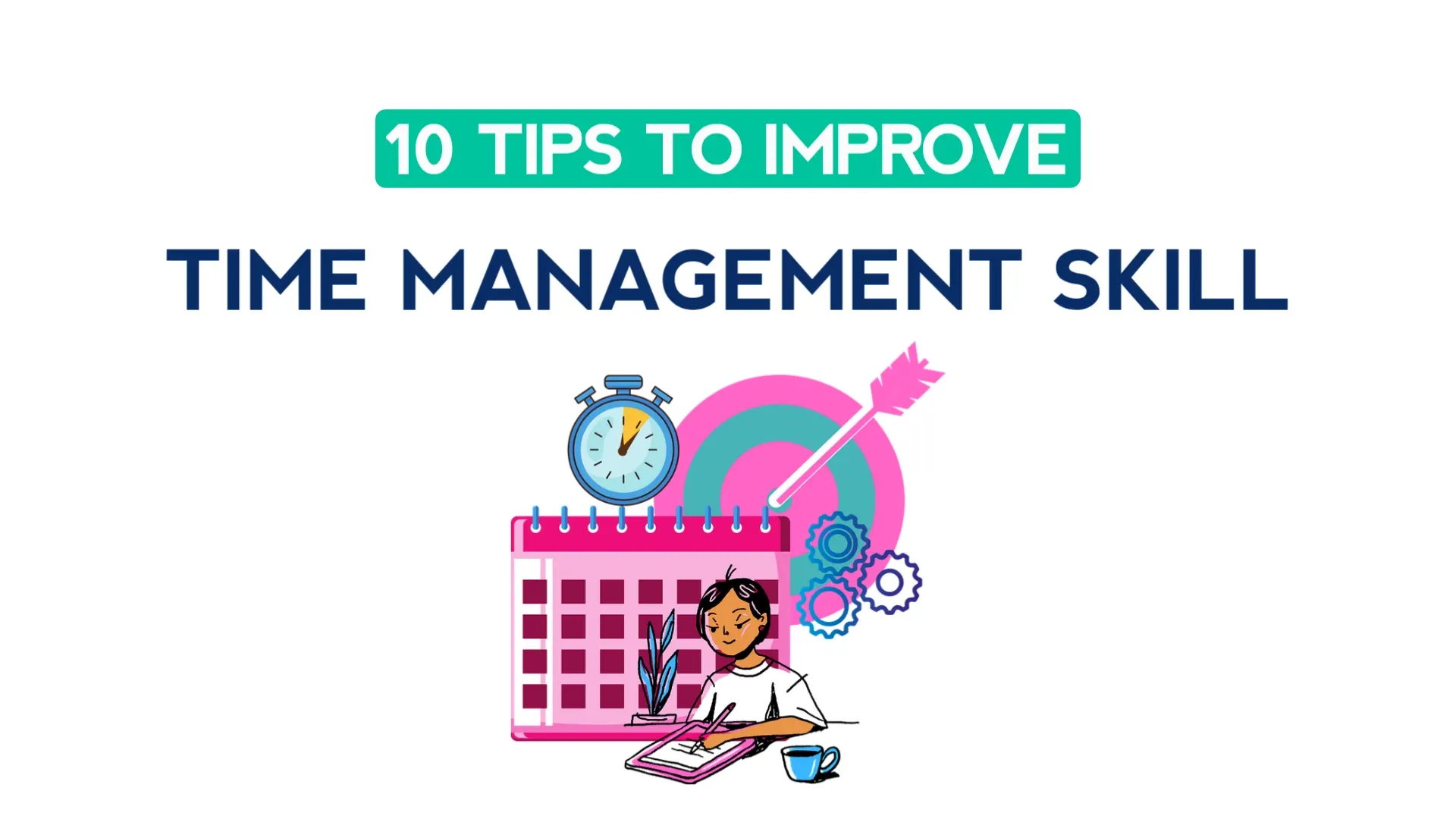Time management is a very crucial skill for students. That can greatly impact their academic success and overall well-being. Balancing classes, assignments, extracurricular activities and personal life can be overwhelming, but with use of effective time management strategies, students can maximize their productivity and minimize stress. In this article, we'll delve into the world of time management and we'll explore 10 effective ways to improve time managements skills for students.
Importance of Time Management for Students
Being a student, we have our own set of challenges - from attending classes to completing assignments and preparing for exams. Without proper time management strategies, these can be burden, leading to stress and a decrease in academic performance. Here's why mastering time management is important:
1. Boosts Productivity
When we manage our time well, we're able to make the most of every hour. By distributing time to different tasks properly, we can ensure that we're productive and efficient, leading to better results in our studies.
2. Reduces Stress
Having a clear plan and knowing when to work on assignments or exams can significantly reduce our stress levels. When we plan ahead, we avoid last-minute rushes that can lead to anxiety.
3. Enhances Learning
With effective time management blueprint, we can allocate dedicated time for studying and understanding our subjects deeply. This allows for better comprehension and retention of the subject.
4. Balances Responsibilities
Time management helps balancing between academics and personal life. It ensures that we have time for hobbies, relaxation, and spending time with family and friends.
10 Tips to Improve Time Management for Students
 |
| How to Improve Time Management for Students (10 Simple Ways) |
Now, we understood the importance of time management, let's dive into 10 practical tips to improve time management skills:
1. Create a Weekly Schedule
Start by creating a weekly schedule that includes all classes, study sessions, extracurricular activities, and even free time. Allocate specific time blocks for each task, and stick to your plan as closely as possible.
2. Prioritize Tasks
Identify tasks that are urgent and important. Use methods like the Eisenhower Matrix to categorize tasks into four categories: urgent and important, important but not urgent, urgent but not important, and neither urgent nor important.
3. Set SMART Goals
Set Specific, Measurable, Achievable, Relevant, and Time-bound (SMART) goals for your studies. Breaking down your goals into smaller, manageable tasks can make them more achievable and less overwhelming.
4. Use Time Management Tools
Use tools like planners, calendars, and productivity apps. These will help you stay organized. Digital tools can send you reminders and notifications, keeping you on track with your tasks.
5. Avoid Multitasking
While it might seem efficient, and you need do multitasking, but this can often lead to less productivity and lower-quality work. Focus on one task at a time to ensure you're giving your full attention and effort.
6. Learn to Say No
As a student, you may be presented with a variety of opportunities and commitments. It's crucial to learn to say no when you're already juggling multiple responsibilities. Sometime, you may need to avoid party or enjoyment.
7. Take Breaks
Include short breaks in your study sessions. Taking breaks help you recharge and maintain your focus. For example, the Pomodoro Technique, it involves studying for 25 minutes and then taking a 5-minute break.
8. Avoid Procrastination
Procrastination can be a major roadblock to time management. To avoid this, break tasks into smaller steps and start with the easiest or most challenging one, depending on your preference. By doing, the chance of procrastinating decreases.
9. Review and Reflect
Regularly review your schedule and assess whether you're sticking to it. Reflect on what's working and what needs to improve. Modify your schedule as necessary.
10. Get Enough Sleep
Good sleep is essential for effective time management. A well-rested mind is more productive, focused, and capable of managing tasks efficiently.
FAQs related to Time Management
Conclusion
Time management is a skill that can benefit us not only academically, but also in various aspects of our lives. By implementing these 10 ways to improve time managements, we can create a balanced and productive routine. Remember, time management is a journey, and with dedication and effort, we can gradually master this skill and enjoy the rewards it brings.
I hope you found today's post interesting and it provided some value to you. You can subscribe our newsletter to get next study tips and personal growth stuff in your mail box. Additionally, remember to share this valuable article with your circle, extending the benefits of time management tips to others. Thank you for immersing yourself in these insights!